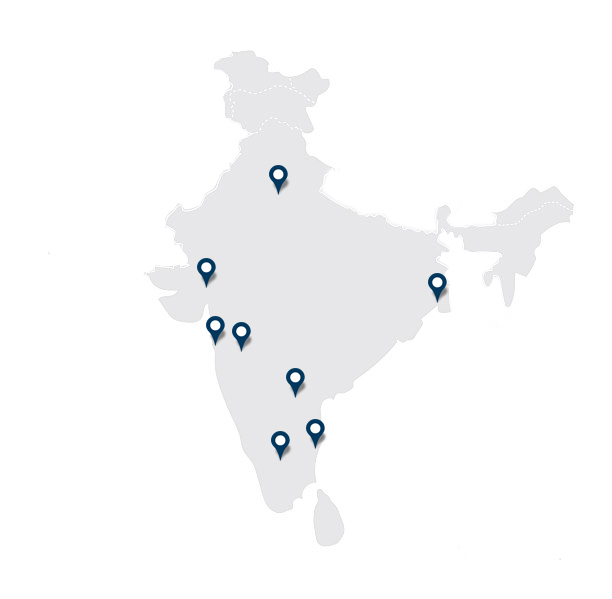Introduction
Why Pursue an MBA in the UK?
At first glance, the IELTS scoring system might appear daunting, but it’s really quite simple once you grasp the fundamentals. The test is scored based on a scale from 0 to 9 and each band corresponds to a certain level of English proficiency, which we will talk about in detail in some time.
Reputation and Quality of Education
Networking Opportunities
UK business schools attract a diverse student community and provide valuable networking opportunities. Students can build relationships with business leaders from various backgrounds and gain insights into different cultures and business practices.
The diverse student community at UK business schools is a significant advantage for international students. Students gain exposure to different perspectives, cultures, and business practices by studying alongside peers from around the world. This exposure enriches the learning experience and helps students develop a global mindset and the ability to navigate cross-cultural business environments.
Moreover, UK business schools have strong connections with the local and international business communities. Through guest lectures, company visits, and internship opportunities, students can network with industry leaders and gain valuable insights into various industries’ real-world challenges and best practices.
Shorter Duration of MBA Programs
Compared to many countries, MBA programs in the UK usually last between 12 and 24 months for full-time study. This lets students obtain a top-notch education and progress in their professions quickly.
The shorter duration of MBA programs in the UK is a significant advantage for students who want to minimise the time spent away from the workforce and maximise their return on investment. Students who finish their MBA in 12 to 24 months can rapidly apply their recently gained knowledge and abilities to their jobs, increasing their professional development and earning potential.
Moreover, the shorter program duration means students can save on living expenses and opportunity costs of pursuing a longer MBA program. This makes UK MBA programs a great choice for students who want to achieve their career goals efficiently and cost-effectively.
Top MBA Universities in the UK
The UK boasts several top-ranked MBA programs, each offering unique features and specialisations. Let’s explore some of the top MBA universities in the UK that consistently rank among the world’s best business schools:
1. London Business School (LBS)
London Business School is renowned for its exceptional business education and is consistently ranked among the top business schools worldwide.
- Global Ranking:
- QS Global MBA Ranking 2025: #5
- Unique MBA Programs: Full-time MBA, Executive MBA (EMBA) in London and Dubai, EMBA-Global in partnership with Columbia Business School, and Sloan Masters in Leadership and Strategy.
2. Cambridge Judge Business School
As part of the prestigious University of Cambridge, Judge Business School is a global leader in business education known for its innovative approach and transformative student experience.
- Global Ranking: QS Global MBA Ranking 2025 #7
- Unique MBA Programs: One-year Cambridge MBA, specialised master’s programs, and executive education courses.
3. Imperial College Business School
Part of Imperial College London, this business school is known for its strong focus on technology, innovation, and entrepreneurship.
- Global Ranking:
- QS Global MBA Ranking 2025: #18
- Unique MBA Programs: Full-time MBA, Executive MBA, Global Online MBA, and specialised master’s programs in finance and business analytics.
4. Saïd Business School, University of Oxford
Saïd Business School blends Oxford’s historic prestige with cutting-edge business education, preparing leaders to tackle contemporary global challenges.
- Global Ranking: QS Global MBA Ranking 2025: #19
- Unique MBA Programs: A full-time MBA with themes like global rules of the game, entrepreneurship, and responsible business and a part-time Executive MBA.
5. Warwick Business School (WBS)
Warwick Business School is celebrated for its rigorous academic programs and innovative research, which contribute significantly to global business practices.
- Global Ranking:
- QS Global MBA Ranking 2025: #30
- Unique MBA Programs: Full-time, Executive, and highly regarded online MBA programs. Specialised master’s programs in finance, marketing, and analytics.
6. Alliance Manchester Business School
As part of the University of Manchester, Alliance MBS is a powerhouse of business education, research, and real-world applications.
- Global Ranking:
- QS Global MBA Ranking 2025: #47
- Unique MBA Programs: Flexible MBA options, including Global Part-time MBA and Kelley-Manchester Global MBA.
7. University of Edinburgh Business School
Known for its modern and practical approach to business education, Edinburgh offers a comprehensive range of programs tailored to meet industry needs.
- Global Ranking:
- QS Global MBA Ranking 2025: #58
- Unique MBA Programs: Edinburgh MBA focuses on real-world application, emphasising leadership, innovation, and strategic thinking.
8. Cranfield School of Management, Cranfield University
- Global Ranking:
- QS Global MBA Ranking 2025: #68
- Unique MBA Programs: The Transformation MBA is an intensive 12-month programme designed to equip students with the skills and mindset needed to lead in a rapidly changing business environment. The Executive MBA is tailored for professionals seeking to enhance their leadership capabilities while continuing to work.
9.Leeds University Business School
- Global Ranking:
- QS Global MBA Ranking 2025: #72
- Unique MBA Programs: The Leeds MBA is a one-year intensive programme that integrates business theory with practical challenges, including live projects and global experiences, to develop tactical thinking and leadership skills.
10. Durham University Business School
- Global Ranking:
- QS Global MBA Ranking 2025: #101-110
- Unique MBA Programs: The Durham MBA offers pathways in entrepreneurship, consultancy and technology, with a strong focus on leadership and strategic management.
Eligibility Criteria for MBA Programs in the UK
Academic Requirements
Work Experience
English Language Proficiency
Entrance Exams
Application Process for Indian Students
The application process for MBA programs in the UK typically involves the following steps:
- Choose a suitable MBA program and university
- Prepare the required documents, such as transcripts, letters of recommendation, and a compelling statement of purpose that highlights your career goals and motivation
- Take the necessary entrance exams (GMAT/GRE) and English proficiency tests (IELTS/TOEFL)
- Submit the online application along with the required documents and application fee
- Attend an interview if shortlisted by the university
- Obtain a student visa upon receiving an offer of admission
To ensure a smooth and successful application, it is essential to start the application process early and seek guidance from educational consultants or university representatives.
List of Necessary Documents
- Academic transcripts and degree certificates
- Resume/CV
- GMAT/GRE scores
- English proficiency test scores (IELTS/TOEFL)
- Letters of recommendation: please note that an academic LOR is not accepted if a single LoR is demanded.
- Application essays/personal statements
- Passport copy
- Visa- tier 4 UK study visa or PSW
- Financial statements (proof of funds), such as loan statements
Cost of Studying MBA in the UK
Tuition Fees
Living Expenses
Living expenses in the UK can vary based on location and lifestyle. Students should budget around £12,000 to £15,000 per year for living costs, including accommodation, food, transportation, and personal expenses.
Accommodation: Options range from university halls of residence to private rentals. Depending on the location and type of accommodation, the cost can range from £500 to £1,200 per month.
Food: Monthly food expenses can range from £200 to £400, depending on eating habits and whether students cook at home or dine out.
Transportation: Public transportation is well-developed in the UK, with students often benefiting from discounted fares. Monthly transportation costs can range from £50 to £100.
Scholarships and Financial Aid
Available Scholarships
Several universities and organisations offer scholarships and financial aid to international students pursuing MBA programs in the UK. Some popular options include:
- Chevening Scholarships: Funded by the UK Foreign, Commonwealth & Development Office and partner organisations, Chevening Scholarships provide full or partial funding for postgraduate study in the UK.
- Commonwealth Scholarships: Offered by the Commonwealth Scholarship Commission in the UK, these scholarships support postgraduate study and professional development for citizens of Commonwealth countries.
- British Council Scholarships: The British Council offers various scholarship programs for international students, including the GREAT Scholarships and the Study UK Alumni Awards.
In addition to university-specific and external scholarships, students can explore loan options from banks or financial institutions in their home countries or the UK.
How to Apply for Scholarships
When applying for scholarships, follow these steps:
- Research: Identify scholarships you are eligible for and understand their application requirements and deadlines.
- Prepare Documents: Gather necessary documents, including academic transcripts, recommendation letters, and personal statements.
- Write Essays: Create excellent scholarship applications stressing your accomplishments, career aspirations, and how the scholarship will enable you to reach them.
- Submit Applications: Apply well before the deadlines to ensure your application is considered.
Job Opportunities After MBA in the UK
Job Market Overview
The UK continues to be a vibrant destination for MBA graduates, where a wide range of career opportunities await across various industries. Thanks to its strong economy and extensive international ties, professionals with an MBA can explore roles that truly match their skills and ambitions, helping them build meaningful and rewarding careers.
Finance and Banking
London, as a global financial centre, hosts institutions like Barclays, HSBC and JP Morgan. MBA graduates can pursue roles in investment banking, risk management and financial consulting.
- Entry-level roles: £50,000 – £75,000 per year
- Mid-level roles: £75,000 – £120,000 per year
- Senior roles: £120,000 – £250,000+ per year
Consulting
Firms like McKinsey, BCG and Deloitte seek MBA graduates for their analytical and leadership skills. Roles include strategy consulting and business transformation.
- Entry-level consultant: £45,000 – £65,000 per year
- Mid-level consultant: £70,000 – £110,000 per year
- Senior consultant/Partner: £150,000 – £300,000+ per year
Technology and Innovation
Tech giants like Google, Amazon and fintech startups offer roles in product management, business development and operations. Cities like London and Manchester are tech hubs.
- Product Manager/Business Development: £55,000 – £90,000 per year
- Mid-level roles: £90,000 – £130,000 per year
- Executive roles: £150,000 – £250,000+ per year
Supply Chain and Logistics
With the growth of e-commerce, companies like DHL, Amazon and Maersk seek professionals to optimise logistics and operations.
- Entry-level roles: £45,000 – £70,000 per year
- Mid-level roles: £70,000 – £100,000 per year
- Senior roles: £100,000 – £180,000 per year
Marketing and Advertising
Advertising agencies and digital marketing firms look for MBAs to drive brand strategy and campaign management.
- Entry-level roles: £35,000 – £60,000 per year
- Mid-level roles: £60,000 – £90,000 per year
- Senior roles: £90,000 – £160,000 per year
Post-Study Work Visa
Eligibility Criteria:
- Hold a valid student visa at the time of application.
- Have completed a degree at a recognised UK institution.
FAQs
Most MBA programs in the UK last one year, but some can extend to 18 months or two years, depending on the structure and internship opportunities.
Yes, international students can work part-time during their studies (up to 20 hours per week) and full-time during holidays. This can help offset living expenses and provide valuable work experience.
Application deadlines vary by institution but generally fall between October and April for September intake. It’s important to check specific deadlines for each program and apply well in advance.
While many elite business schools require GMAT scores, other programs may grant waivers based on outstanding academic records or significant work experience. Check the particular prerequisites for every program.


